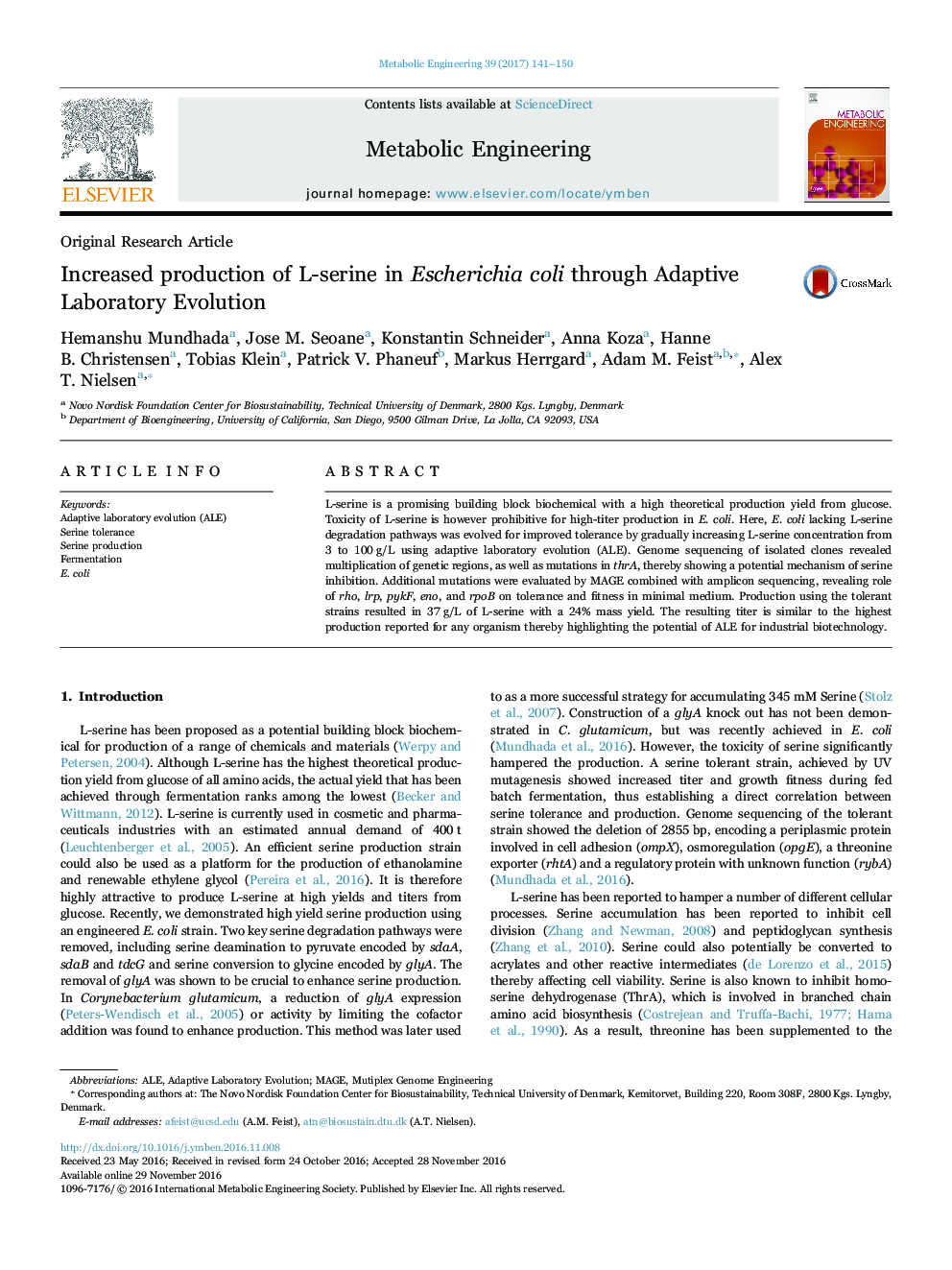| کد مقاله | کد نشریه | سال انتشار | مقاله انگلیسی | نسخه تمام متن |
|---|---|---|---|---|
| 6452792 | 1418339 | 2017 | 10 صفحه PDF | دانلود رایگان |

- Adaptive laboratory evolution enhanced tolerance towards L-serine from 3 to 100Â g/L.
- Potential site of L-serine inhibition identified on homoserine dehydrogenase, ThrA.
- Gene clusters encoding potential serine exporters duplicated in evolved strains.
- Combined MAGE and amplicon sequencing enables identification of causative mutations.
- Evolved strain produced 37Â g/L of L-serine with a 24% mass yield from glucose.
L-serine is a promising building block biochemical with a high theoretical production yield from glucose. Toxicity of L-serine is however prohibitive for high-titer production in E. coli. Here, E. coli lacking L-serine degradation pathways was evolved for improved tolerance by gradually increasing L-serine concentration from 3 to 100Â g/L using adaptive laboratory evolution (ALE). Genome sequencing of isolated clones revealed multiplication of genetic regions, as well as mutations in thrA, thereby showing a potential mechanism of serine inhibition. Additional mutations were evaluated by MAGE combined with amplicon sequencing, revealing role of rho, lrp, pykF, eno, and rpoB on tolerance and fitness in minimal medium. Production using the tolerant strains resulted in 37Â g/L of L-serine with a 24% mass yield. The resulting titer is similar to the highest production reported for any organism thereby highlighting the potential of ALE for industrial biotechnology.
199
Journal: Metabolic Engineering - Volume 39, January 2017, Pages 141-150